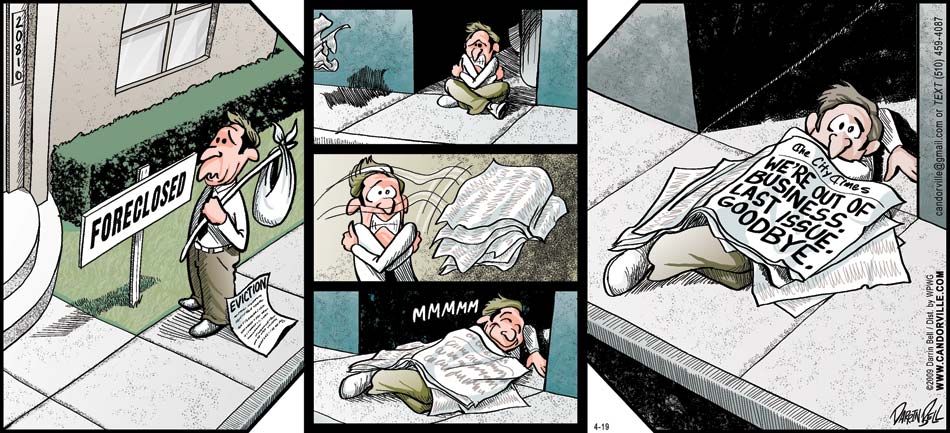 |
| New Yorker September 24, 2001 |
 |
| New Yorker September 17, 2001 |
 |
| New Yorker May 2, 2011 |
 |
| Newsweek May 6, 2011 |
 |
| New Yorker May 9, 2011 |

 |
| New Yorker September 24, 2001 |
 |
| New Yorker September 17, 2001 |
 |
| New Yorker May 2, 2011 |
 |
| Newsweek May 6, 2011 |
 |
| New Yorker May 9, 2011 |

"I'm going to buy an iPad! I'm going to buy an iPad! I don't have a computer, so this is a big moment for me," continued Ms. [Lynn] Hirschberg.
And how does she write her stories now without a computer?
"I don't type them," said Ms. Hirschberg. "I give a handwritten copy to someone who types them, who I pay."

Second, and key to keeping the app feeling alive and relevant, it pulls in new info, so the app doesn't become a fossil once you're done with the issue. The mini-app-within-an-app—a living infographic, if you will—that they demoed for me charted seismological data in the US, not only historically, but also using the most recent 7 days of earthquake data from the USGS. Which is really savvy—the mag retains value after you're done reading the issue.The iPad version, which Gizmodo is quick to note is still "incrementally reformatting the magazine, instead of reinventing it" does acknowledge the strange thing about print publications: they are out of date before they hit the stands. Electronic versions of magazines never have to be out of date.

Which of the following best describes the type of business, industry, or profession in which you work?
Click one.
Accounting
Advertising/Marketing/Public Relations
Agriculture/Farming
Architecture/Interior Design
Arts/Entertainment/
Broadcasting/Publishing
Automotive/Aerospace
Computer - Hardware/IT
Computer - Software/Programming
Construction/Labor/Trades Industry
Engineering/R&D
Fashion/Design/Modeling
Finance/Banking/Investment Services
Food Service/Lodging
Healthcare/Medical
Human Resources
Insurance
Law/Legal
Manufacturing/Operations
Non-Profit (not including Religion)
Pharmaceutical/Biotechnology
Raw Materials (Oil, Gas, Mining, Lumber, etc.)
Real Estate Industry
Religion/Ministry
Retail/Wholesale
Social Services
Sports/Recreation
Telecommunications Industry
Transportation/Warehousing
Travel/Tourism
Utilities
Other

I don't know: it just seems a little mean to have an online-only publication mock newspapers. And seriously, high and mighty Slate, your parent company is now an education company first, and a media company second. Doesn't that make you a little sad?

For the past few years, as newspapers got slowly crushed by myriad factors, a phalanx of top writers and editors fled for the greener pastures of the Internet. The quality of nearly every paper suffered, as did morale. Just two weeks ago, reports surfaced that the New York Times Company (which owns the Globe) was demanding $20 million in union concessions or it'd shut down the Globe completely. I grew up dreaming of writing a sports column for the Globe; now the paper might be gone before I turn 40. It's inconceivable.






"My grandfather reads the newspaper... I like to play video games."
"It's what old people do."
"Most of it is in black and white."
"It's boring, stupid, and hard to understand."
"It has nothing to do with my life."
"It's messy." (This was easily remedied by a quick session on how to fold a newspaper.)
"I already saw this on T.V."



Increasingly, my gung-ho journalism friends are becoming disillusioned. Not with the world. That's old news. It only takes a little bit of time reading, writing, and reporting about the world to become disillusioned with it.
Rather, it's our starry-eyed attitude about the power and resilience of the industry we love and believe in that is fading fast.
Perhaps there is some comfort from the words of The New York Times' Timothy Egan, written on the real independence day (a fact my sister, born two days before her official due date, likes to point out).
The blog post also arrived on the day the LA Times announced the paper will face 150 layoffs and higher-ups wrote in an e-mail: "But it is absolutely crucial that as we move through this process, we must maintain our ambition and our determination to produce the highest-quality journalism in print and online, every day" thus making me want to throw up, because there is only so many times you can say "do more with less" without asking for accusations of "Bull Shit" from the people who still desperately want to believe in the viability of print.
On the lobby wall of the newspaper where I got my first reporting job are the Thomas Jefferson words that journalists like to trot out as Independence Day nears:
"Were it left to me to decide whether we should have a government without newspapers or newspapers without a government, I should not hesitate a moment to prefer the latter."
Of course, Jefferson also said the only reliable truths in newspapers were the advertisements, and that he was happiest when not reading the papers.
But as to his iconic quote, it's no secret that we're trending toward the former. And anyone who cheers the collapse of the newspaper industry should consider why Jefferson put aside his distaste for the vitriol and nonsense of the press for the larger principle of healthy democracies needing informed citizens....
My lament this Fourth of July is to ask readers to see newspapers as not just another casualty in the churn of business. Sure, reporters say stupid things and write idiotic stories. Everyone stumbles. But on its best days, a newspaper is a marvel of style and wit, of small-type discoveries and large-type overstatements, a diary of our deeds.
We may still prove Jefferson's preference wrong: perhaps a nation can function without newspapers. But it would be a confederacy of dunces.











